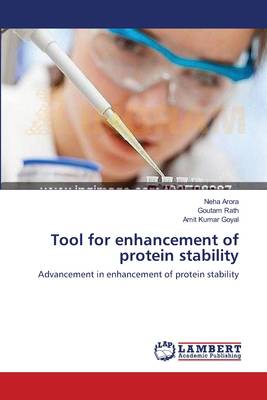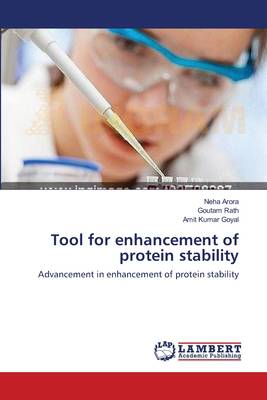
Bedankt voor het vertrouwen het afgelopen jaar! Om jou te bedanken bieden we GRATIS verzending (in België) aan op alles gedurende de hele maand januari.
- Afhalen na 1 uur in een winkel met voorraad
- In januari gratis thuislevering in België
- Ruim aanbod met 7 miljoen producten
Bedankt voor het vertrouwen het afgelopen jaar! Om jou te bedanken bieden we GRATIS verzending (in België) aan op alles gedurende de hele maand januari.
- Afhalen na 1 uur in een winkel met voorraad
- In januari gratis thuislevering in België
- Ruim aanbod met 7 miljoen producten
Zoeken
Tool for enhancement of protein stability
Advancement in enhancement of protein stability
Neha Arora, Goutam Rath, Amit Kumar Goyal
Paperback | Engels
€ 59,95
+ 119 punten
Omschrijving
Chemical modification and protein engineering, by searching for homolog's in hyperthermophiles especially are useful tools for thermo stabilizing proteins, and also for elucidating the mechanism of protein stability that a single or a few amino acid replacement(s) in a protein is/are sufficient to enhance protein thermostability. Many eukaryotes have no homologs protein in the thermophilic organism; protein engineering would be necessary in such cases. Protein engineering may involve directed evolution. The factors affecting the thermal stability of proteins have been identified by comparison of the mesophilic and thermophilic protein belonging to the same protein family. Mainly it concern the tertiary structure of the proteins or their related proteins. One can replace amino acid(s) in a protein by mutagenesis. A promising strategy involves transfer of the identified gene into a thermophile and subsequent growth at higher temperatures. The thermodynamic thermal stability of a protein depends upon the differences in the enthalpy.
Specificaties
Betrokkenen
- Auteur(s):
- Uitgeverij:
Inhoud
- Aantal bladzijden:
- 56
- Taal:
- Engels
Eigenschappen
- Productcode (EAN):
- 9783659193293
- Verschijningsdatum:
- 15/08/2012
- Uitvoering:
- Paperback
- Afmetingen:
- 152 mm x 229 mm
- Gewicht:
- 102 g

Alleen bij Standaard Boekhandel
+ 119 punten op je klantenkaart van Standaard Boekhandel
Beoordelingen
We publiceren alleen reviews die voldoen aan de voorwaarden voor reviews. Bekijk onze voorwaarden voor reviews.









